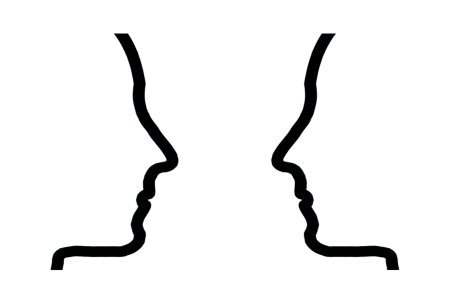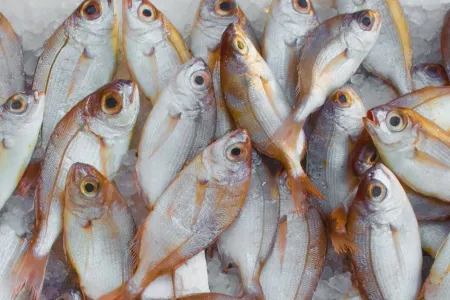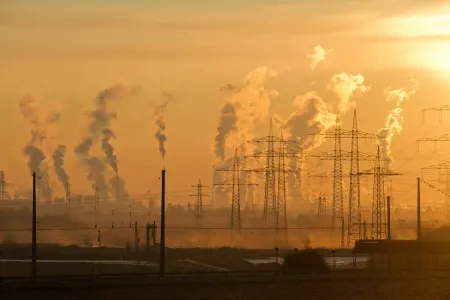Displaying results 1 - 10 of 1073

Bessma Momani: After Afrin, Inklings of a Confrontation between NATO Allies
The West’s support of the Syrian Democratic Forces – a mere rebranding of the
Kurdistan’s Workers Party (PKK) – is intimately connected to Turkey’s Afrin offensive, says Bessma Momani in an opinion piece published in The Globe and Mail. Although Turkish President Recep Tayyip Erdogan affirmed that this military campaign would be brief, Momani asserts it is bound to face “fierce resistance” from the Kurds residing in the mountainous region. And, should Turkey advance beyond Afrin, it is likely that it will come face-to-face with U.S. troops; diplomatic resources should be deployed in order to avoid such a confrontation between NATO allies, she argues. Bessma Momani is a 2015 Trudeau fellow and a professor in the Department of Political Science at the University of Waterloo and the Balsillie School of International Affairs. Read the full article here.
Kurdistan’s Workers Party (PKK) – is intimately connected to Turkey’s Afrin offensive, says Bessma Momani in an opinion piece published in The Globe and Mail. Although Turkish President Recep Tayyip Erdogan affirmed that this military campaign would be brief, Momani asserts it is bound to face “fierce resistance” from the Kurds residing in the mountainous region. And, should Turkey advance beyond Afrin, it is likely that it will come face-to-face with U.S. troops; diplomatic resources should be deployed in order to avoid such a confrontation between NATO allies, she argues. Bessma Momani is a 2015 Trudeau fellow and a professor in the Department of Political Science at the University of Waterloo and the Balsillie School of International Affairs. Read the full article here.

Bessma Momani: Iran Needs This Internal Combustion
In early January, a series of spontaneous revolts spread from the capital to the provincial regions of Iran. In response to the uprisings, the regime counter-mobilized crowds and law enforcement, leading to deadly clashes with protesters. This internal combustion is necessary for Iran to “move away from the power of the clerics and rid the country of its dogmatic theocracy,” commented Bessma Momani in an opinion piece published in The Globe and Mail. Bessma Momani is a 2015 Trudeau fellow and a professor in the Department of Political Science at the University of Waterloo and the Balsillie School of International Affairs. Read the full article here.

Pierre Cloutier de Repentigny: Upgrade Needed for the Fisheries Act
With increasing climatic and demographic pressures, fisheries today are anything but endless natural resources, yet the Fisheries Act has not been upgraded since 1977. Considering the economic and ecologic urgency of the situation, the current government’s promise to reform the Act is a “perfect opportunity to modernize our fisheries regime,” commented Pierre Cloutier de Repentigny in an opinion piece published in The Hill Times. Fisheries are “crucial for the well-being and survival of many Canadians”; it is up to the government that the Fisheries Act “gets the upgrade it deserves.” Pierre Cloutier de Repentigny is a 2017 Trudeau scholar as well as a doctoral student and part-time professor at the University of Ottawa’s Faculty of Law.
Read the full article to discover Pierre’s four recommendations for an upgrade of the Fisheries Act.
Read the full article to discover Pierre’s four recommendations for an upgrade of the Fisheries Act.

Benjamin Gagnon Chainey: Humanity in Caregiving
What are our ambivalences and our struggles, both individual and collective, in the face of illness? As described in his research account (French only) for Découvrir, the magazine of the Association francophone pour le savoir (Acfas), the doctoral research of 2017 Trudeau scholar Benjamin Gagnon Chainey is decidedly “medico-literary.” It attempts to (re)connect caregivers to the riches of the literary, cultural, and artistic history of clinical practice. To this end, Gagnon Chainey establishes dialogues between medically-inspired 19th century authors and the work of Hervé Guibert, a multidisciplinary French writer who died at the height of the AIDS pandemic in 1991. Benjamin’s scientific and literary vocations allow him to breathe more humanity into the caregiving relationship. Read the full article here.

Elena Waldispuehl: Cyberization, Politics, and Scientific Inquiry
Are you reading this information on your phone or computer? Have you ever wondered how technological innovation is transforming your daily life? Noting that we are living through an individual and collective “cyberization,” Elena Waldispuehl and Hugo Loiseau’s book, Cyberspace and Political Science: From Methodology to the Field, from Virtual to Real (translation ours; Presses de l’Université du Québec), attempts to delineate the social and political changes resulting from this major shift. More than that, and through skillful introspection, Waldispuehl and Loiseau question how cyberization impacts the scientific practices of political scientists like them. They argue that it is crucial to study the “cyber phenomenon” in order to secure the long-term credibility, knowledge, and significance of social science. Elena Waldispuehl is a 2017 Trudeau scholar and a doctoral candidate in political science at the Université de Montréal. Read the full summary and buy the book here (French only).

Ido Katri: Accounting for Intersectional Harms in Discrimination Cases
A growing number of domestic and international legal regimes are adopting provisions prohibiting sex- and race-based discrimination. Against this background, how do courts approach intersectional cases of discrimination, in which multiple categories of difference are involved and generate a unique form of lived discrimination? By engaging with discrimination legal cases, Ido Katri recognizes intersectional harms and facilitates a broader systemic account of exclusion. His article, “The banishment of Isaac: Racial signifiers of gender performance,” has been published in the University of Toronto Law Journal. Ido Katri is a 2016 Trudeau scholar and a doctoral candidate at the University of Toronto’s Faculty of Law. Read the full publication here.

Anelyse Weiler: New Food Policy Must Include Migrant Workers’ Rights
Despite the many forms of food insecurity endured by migrant farm workers in Canada, policy-makers have been oddly silent about systemic inequities in agricultural and agri-food industries, wrote Anelyse Weiler, Janet McLaughlin and Donald Cole in an opinion piece published by The Toronto Star. All too often, migrant workers’ rights are pitted against the competitiveness of agri-business, they added. Instead of treating migrant workers as “faceless units of labour,” the federal government’s new food policy must include strong representation from workers, they concluded. Anelyse Weiler is a 2015 Trudeau scholar and a doctoral candidate in sociology at the University of Toronto. Read the full article here.

Benjamin Gagnon Chainey: Experimental Medecine Through "Bouvard et Pécuchet"
“Intellectual flexibility is primordial to capturing the paradoxes not only in literature, but at the very heart of medical practice.” According to 2017 Trudeau scholar Benjamin Gagnon Chainey, this is one of the fundamental lessons drawn by apprentices Bouvard and Pécuchet in Gustave Flaubert’s eponymous novel. Gagnon Chainey’s article, “The (Off)Springs of Literature and Experimental Medicine,” has been published in the online journal Medical and Health Humanities: A Department Without Walls. Through a medico-literary analysis of Flaubert’s novel, Gagnon Chainey’s text engages with the experimental medicine developed by French physiologist Claude Bernard. Read Gagnon Chainey’s article here.

Nicholas Rivers: Higher Carbon Prices Necessary to Achieve Emission Targets
To meet its commitments to reduce greenhouse gases by 30% by 2030, Canada must review its climate policies in 2022. An article published by The Globe and Mail cited Nicholas Rivers and Randall Wigle to demonstrate how meeting Canada's emissions targets will be expensive, whatever the federal and provincial policies adopted. Nevertheless, Rivers suggested that an increase in carbon prices would be the most cost-effective – although perhaps less politically and geopolitically feasible – of all possible measures. Nicholas Rivers is a 2008 Trudeau scholar, an associate professor at the Graduate School of Public and International Affairs of the University of Ottawa, and the Canada research chair in climate and energy policy. Read the article here.

Kent Roach: Boushie Case Highlights Discrimination in Jury Selection
"The deck is stacked against us," declared Colten Boushie’s relatives from Saskatchewan’s Red Pheasant First Nation after the jury selection process left Boushie’s accused killer facing trial without a single Indigenous juror. In an opinion piece published in The Globe and Mail on 30 January 2018, Kent Roach denounced the enduring unfairness of the jury selection process in Canada. The fact that jury selection is subject to peremptory challenges by the accused and the prosecutor is no less than “a stone-cold invitation for jury selection to be infected by conscious or unconscious racist stereotypes,” Roach asserted. Reform must come, he concluded, although it will come too late for justice to be done in the Boushie case. Kent Roach is a 2013 Trudeau fellow and a professor of law at the University of Toronto. Read his article here.

